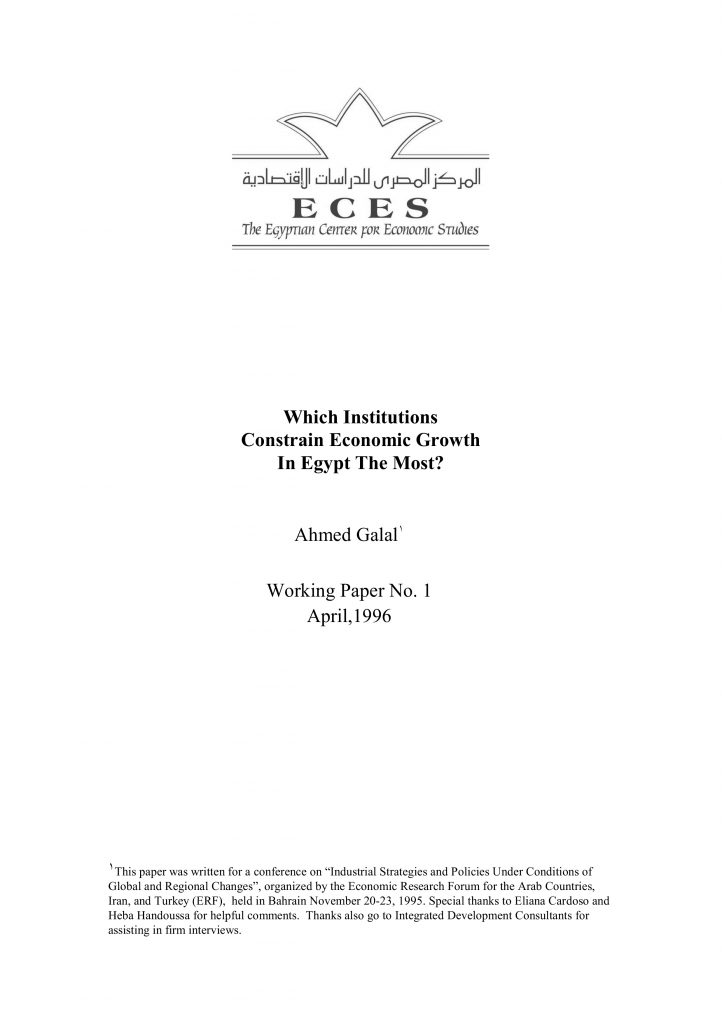Abstract:
Although the incentive structure facing the private and public sectors in Egypt has improved following the economic liberalization of the early 1990s, real economic growth has been modest. This paper contends that the sluggish response to improved incentives is due in part to policy uncertainty and the high transaction costs of conducting business; these both follow from excessive regulation, weak enforcement of contracts, and relatively low credibility of government commitment to reform. Based on a random survey of 45 firms in the food, textile, and engineering industries to verify this contention and to identify the most binding institutional constraints, this paper established the ranking of these constraints, from most to least binding, as follows: policy uncertainty, tax administration, access to finance, access to intermediate inputs, labor regulation, and demand. Efforts to induce investment and growth should therefore first and foremost attempt to reduce policy uncertainty.

